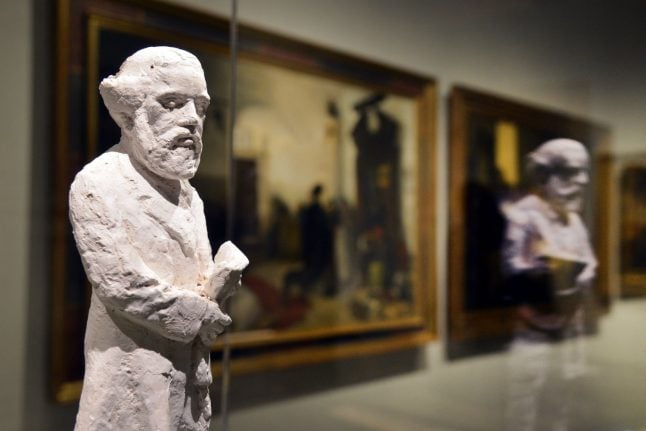A recent study by polling company Demoskop, commissioned by the ‘Upplysning om Kommunismen’ (Knowledge about Communism) association, showed that Swedish students have a skewed view of the history of communism. Few are aware of the massive loss of life caused by followers of this ideology, and 90 percent of Swedish students aged 15-20 do not even know what a gulag was.
A recent opinion piece in Biblioteksbladet magazine (a periodical for Swedish librarians) denounced the government’s plan to spread knowledge to students about the horrors of communism.
In the article, two school librarians write that informing students about the crimes of communism would be wrong as it would risk making the pupils’ views more right-wing.
Former foreign correspondent Kjell Albin Abrahamsson, who has spent many years reporting from the former communist countries in Europe, reacted strongly to the piece.
Writing in tabloid Expressen, Abrahamsson points out how strange it is for two librarians to be so keen to preserve students’ support for socialism that they are are not willing to acknowledge the crimes of communism. He notes that a Russian government commission has admitted that the country’s former communist rulers killed 32 million people.
Support for communism, both hidden and visible, is still quite prevalent among many groups of intellectuals, such as journalists, librarians and those writing in the culture pages of the daily papers. Indeed, outright supporters of communism can be found not only in the Swedish Left Party but also in the Green Party and in the ranks of the influential Social Democrats.
One symptom of this tendency is the widely believed myth among Swedes that Cuba is a relatively prosperous welfare state, offering a decent quality of life and fantastic healthcare to its citizens. Few bother to question the official statistics from a communist country where thousands of citizens have lost their lives whilst attempting to escape on rafts to the United States. Cuba might have gone from being the richest country in Central American to being the second poorest due to Castro’s rule – but this has not stopped Swedish intelligentsia from spreading a positive view of his policies.
Similarly, Swedish journalists seem more interested in pointing out that Venezuela’s Hugo Chavez is a morally superior socialist standing up to the vile Americans, than looking at his dubious moves towards a socialist planned economy and authoritarian rule.
The socialist ideology is not only responsible for the deaths of upwards a 100 million individuals in the former communist countries, the oppression behind the iron curtain and widespread starvation in failed socialist economies. Socialist policies also account for much of the stagnation we see today in Africa, South America and the poorer countries of Asia. Indeed, the countries that today show the greatest rates of development are typically those who quite recently have abandoned socialism in favour of capitalism – India, China, Vietnam and many eastern European countries.
Given communism’s historical record, how long will the intellectual elites carry on defending such a failed ideology? How long will they keep giving moral support to radical left leaning youth organizations such as AFA, who are regularly involved in acts of violence? Shouldn’t modern socialism, if such an ideology is indeed needed, focus on welfare policies that can be combined with individual and economic liberty rather than nostalgia for Marxist class struggles?
Nima Sanandaji is the president of the Swedish free market think tank Captus and publisher of the weekly online Swedish magazine Captus Tidning.




 Please whitelist us to continue reading.
Please whitelist us to continue reading.